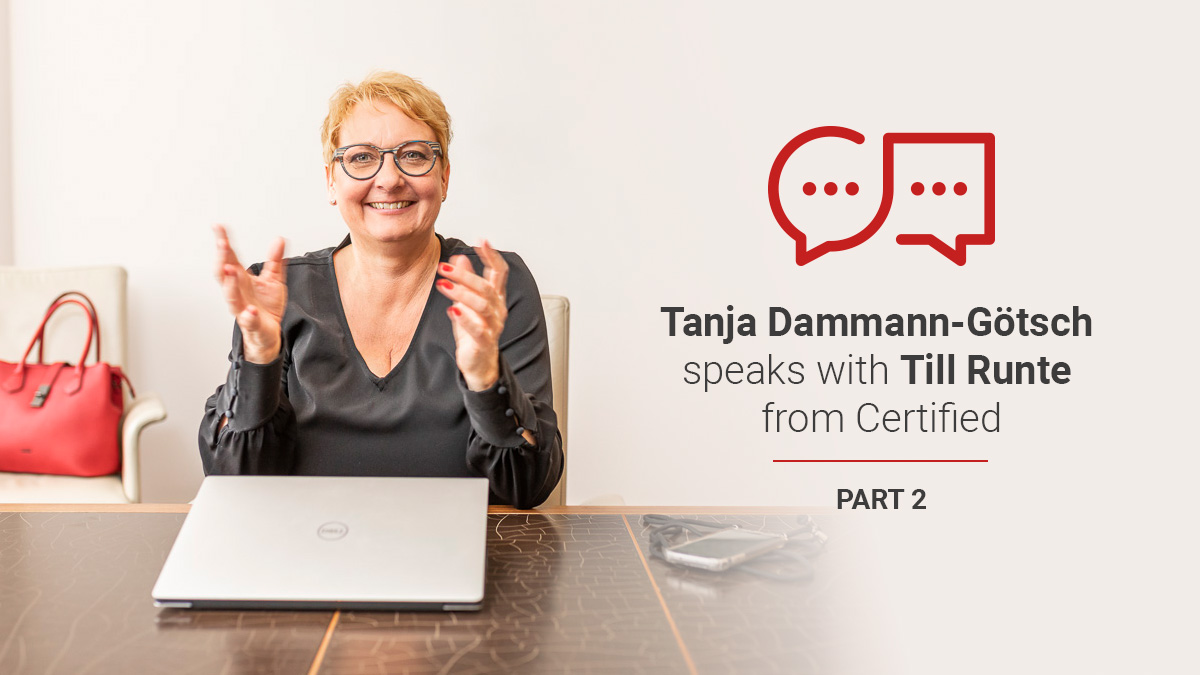What’s the future of purchasing in the hotel industry? Till Runte of Certified speaks with Tanja Dammann-Götsch (Part 2)
The world of purchasing in the hotel industry has become a complex and dynamic playing field in recent years. Current global developments and the increasing expectations by guests pose new challenges and opportunities for both established hotel chains and owner-managed establishments. In this interview with Till Runte of Certified, I provide insights into these challenges and opportunities and explain how players in the hotel industry can master the current developments. In Part 2 of the interview, we’ll look at the sales person’s perspectives, “I want to maintain or increase the rates” and “Everything in regular or something different?”

Till: Tanja, what do I need to offer? Currently, everything is getting more expensive: energy, salaries, food, etc. and no real leeway exists to lower prices. Minimum wages have to be paid in the hotel industry specifically and hotels depend on providing additional services to find and retain staff.
Tanja: Well Till, this is indeed a challenging situation since the costs associated with energy, wages, and food are constantly rising in the hotel industry. As a purchaser, it’s important for me to find out at this point which additional offers and options the supplier has besides the basic rate. I’m aware that the price increases in energy and food are being felt across the board. As a buyer, I therefore expect my supplier to provide me with plausible arguments as to why the hotel in question can’t reduce its rates. A transparent cost calculation plays a decisive role here, letting me understand the increases. Moreover, price increase clauses may be considered, particularly if energy and food prices start to fall again. Essentially, my expectation as a buyer is that the salesperson actively approaches me with proposed solutions and arguments to work out the best conditions together.
What do you recommend to change the direction of the price discussion?
An effective technique here is to attend a negotiation seminar. In such seminars, buyers and sellers are brought together in training sessions to pass on helpful tips and tricks for successful negotiations. If you’re looking for a holistic approach to strengthening procurement in an ever-changing business world, our workshop program features a modular structure with transfer phases and expert support for sustainable learning success. To learn more, visit https://www.dammann-goetsch.consulting/en/focus-on-purchasing/workshops/.
Are apprenticeship programs, quality tests, and so on effective arguments?
In any case, I would use these effective arguments again and again.
Could a fixed annual volume be a solution where the client undertakes to make an additional payment in case the target isn’t reached? Or perhaps the other way around: the parties agree on one price and once the volume has been achieved at the end of the year, the client receives a discount payment for that year?
No doubt the second option is extremely attractive, namely agreeing on a certain rate that is rewarded with an annual rebate once the target has been reached. This type of agreement not only offers the advantage of a possible price reduction, but also provides a strong basis for negotiation. Buyers are usually open to such agreements as they offer financial incentives to meet or even exceed the annual volume. This can help strengthen a long-term business relationship and motivate both sides to achieve their goals.
As a potential supplier or service provider, should you stick to digital processes (request for proposals, etc.) or should you do something differently? This could mean a “spontaneous” visit. A mail shot through the postal system (rather rare these days). An invitation to an in-house exhibition or an information event. Or an informative “show” event, such as a lecture plus a cooking demonstration featuring light conference catering. How can I pack my suitcase without wrinkling the blouses and shirts? Demonstrate easy-to-understand event formats. Business etiquette. Event technology: What is a necessity, what are the overpriced extras? Such a function could be targeted at the various stakeholders in a company: travel or event managers, buyers, HR, marketing, office professionals.
Various approaches exist to interact with potential business partners with tailored solutions playing a key role. Here I would recommend avoiding spontaneous visits at all costs. These are perceived as disturbing. Instead, I would focus on organizing an interesting and innovative “show” function. This idea can also be adapted practically to the different generations of shoppers and their interests and needs. While the younger generation of buyers likes to be addressed digitally, “older” generations of buyers will benefit from personal presentations and events.
Let’s talk more about this subject, via LinkedIn or in a free appointment. Find more exciting subjects in my book Purchasing in Transition [Der Einkauf im Wandel].
Listen to my podcast for more on future-proof strategies in purchasing.